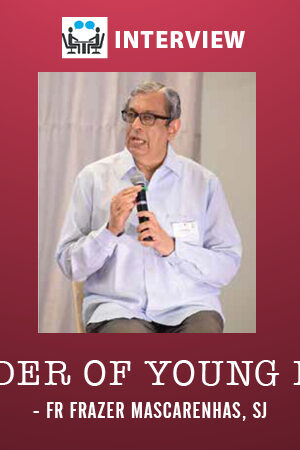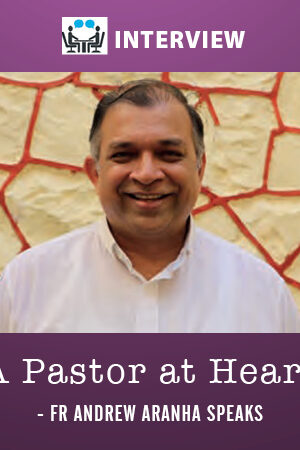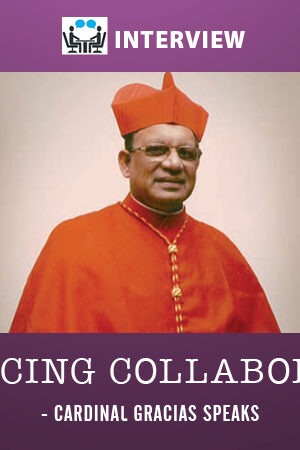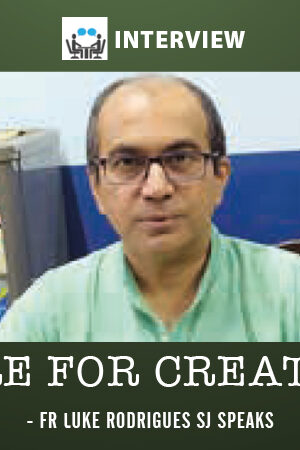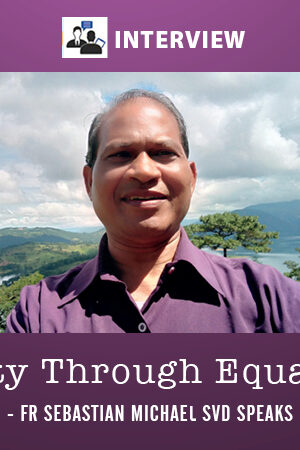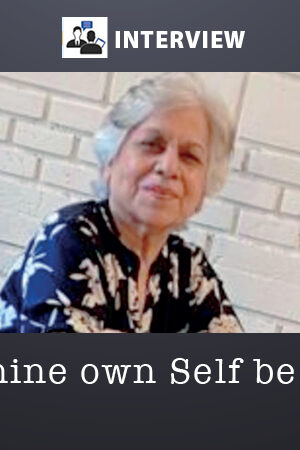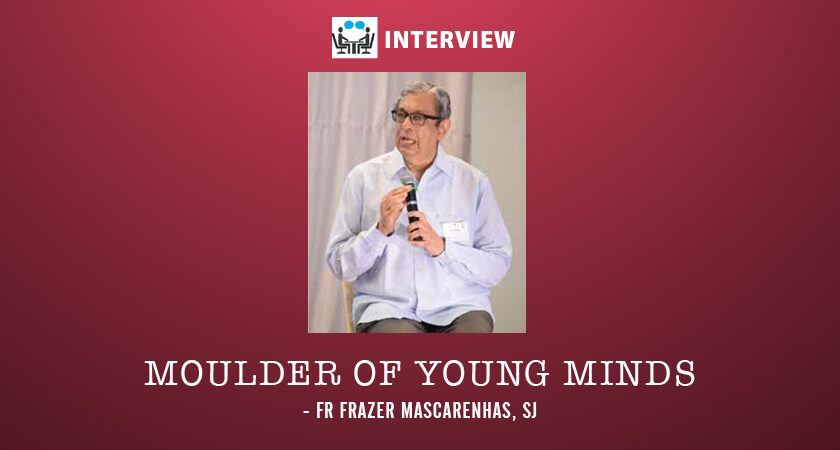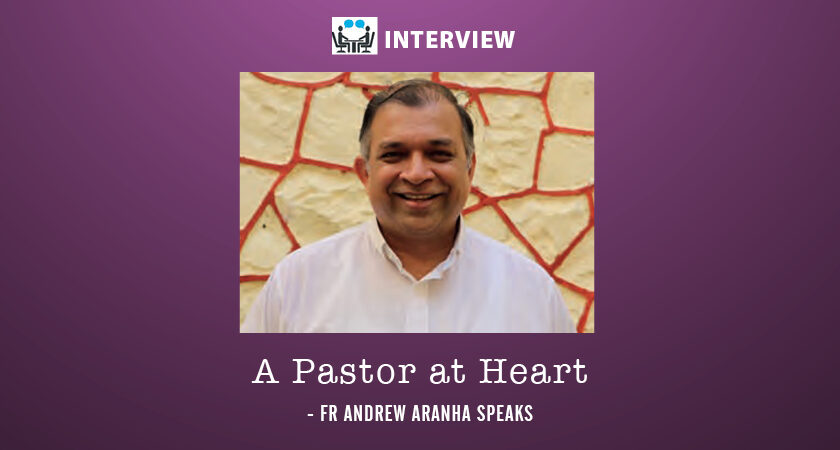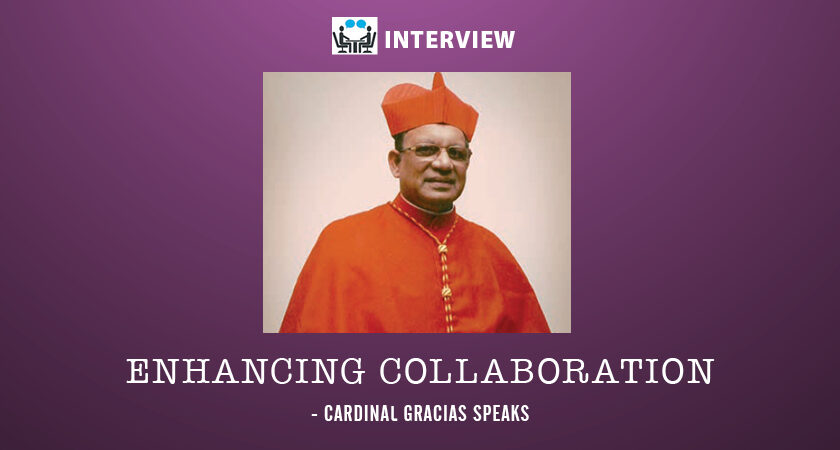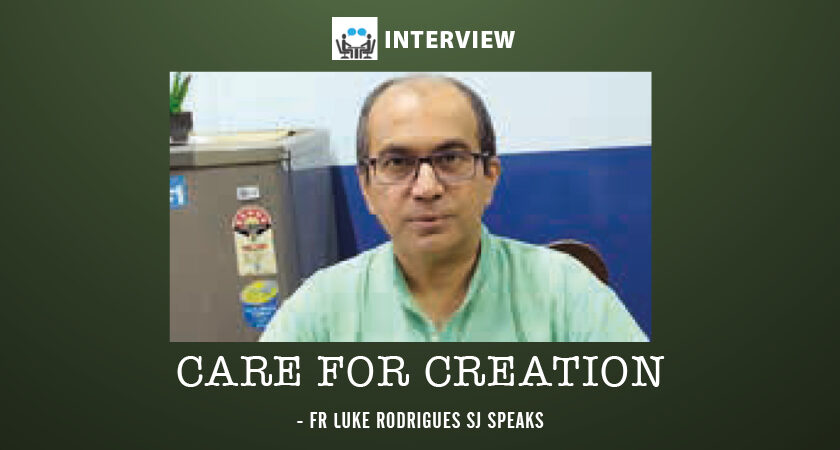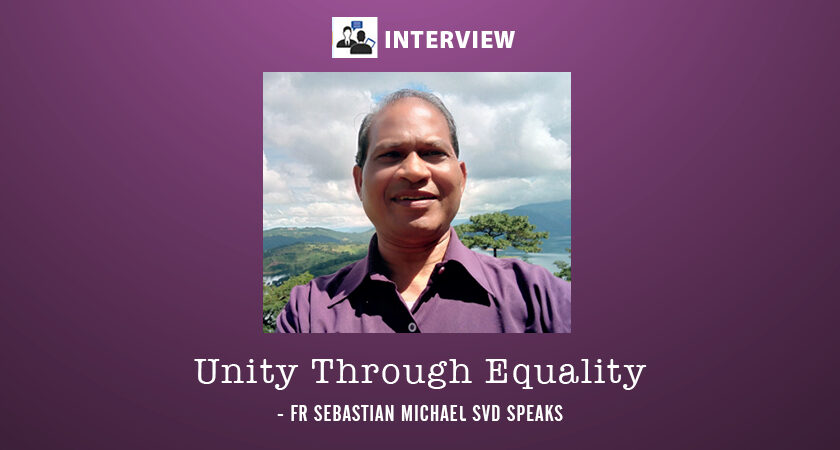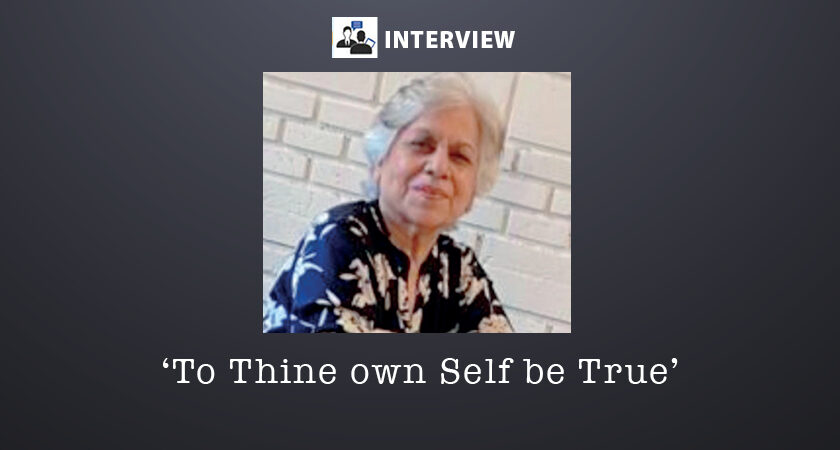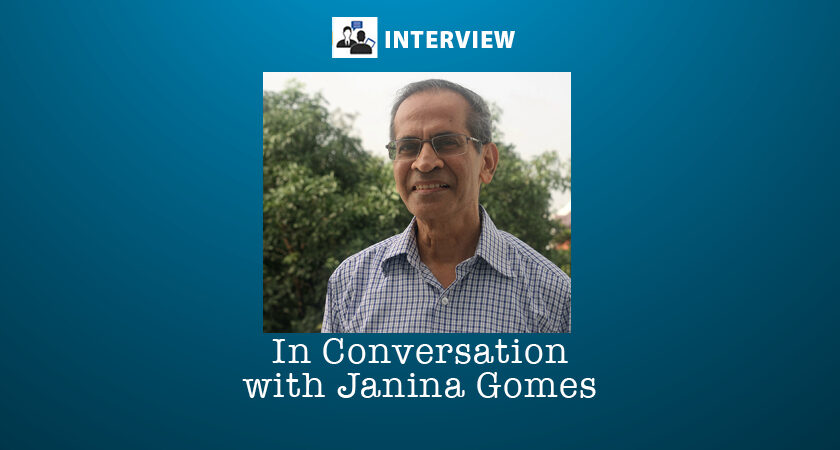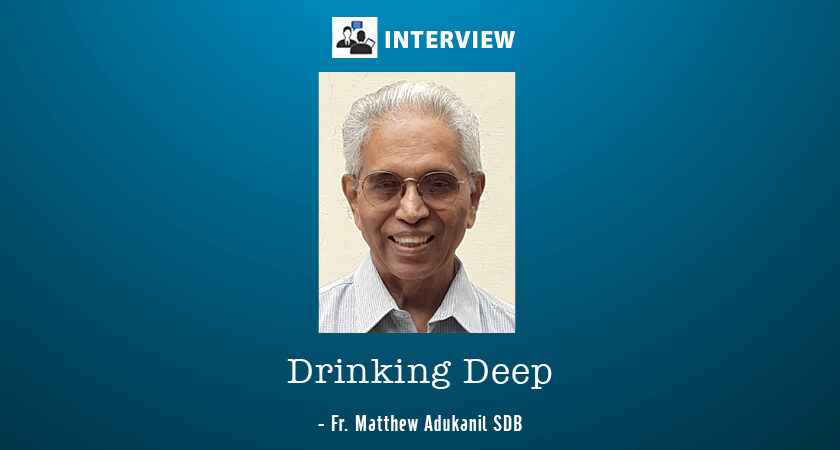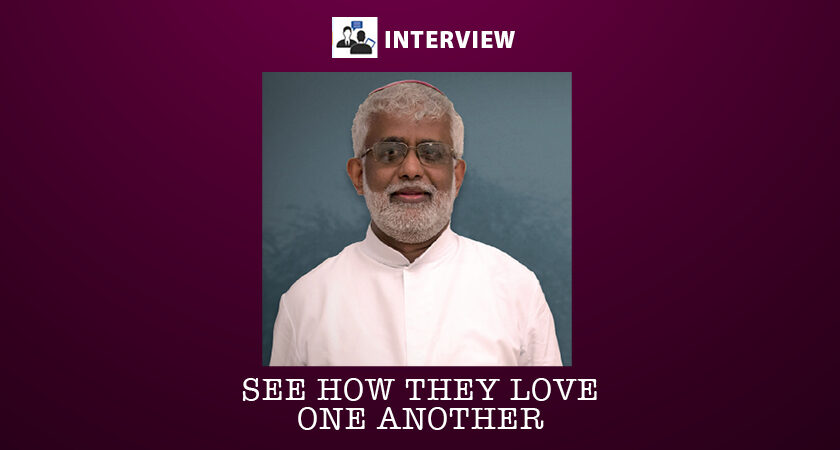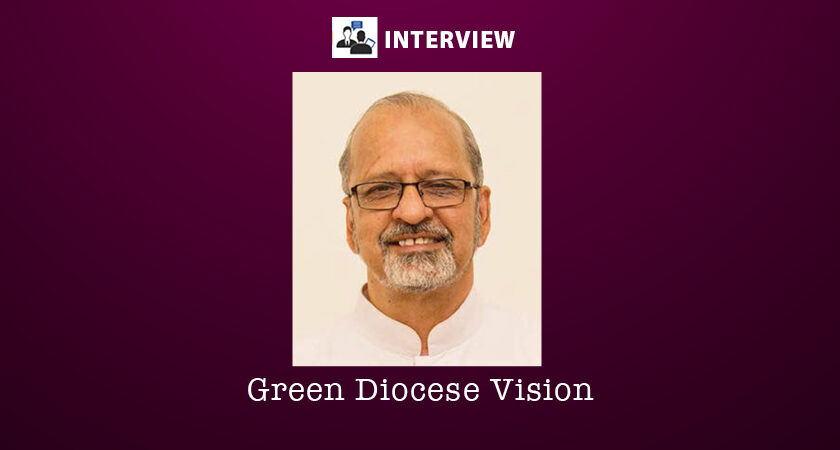In this interview with Janina Gomes, we meet Fr. Frazer Mascarenhas SJ, a compassionate nurturer of young minds and hearts throughout his extensive tenure as an educator. His devotion to the Jesuit brotherhood serves as the cornerstone of his achievements.
- Tell us something about your early life and formative years:
My family lived close to St. Xavier’s High School and so my early religious participation was at the School Chapel where I served as a regular altar-boy. My parents were devout Catholics and their faith was evident in the choices they made, especially that of my Dad seeking employment in England and later in Calcutta, in order to give me and my 4 brothers, a good standard of living and a good education, making the sacrifice of living alone away from us for some years. The 5 of us learnt good Catholic practices which laid a foundation for our adult faith.
- As an alumnus of St. Xavier’s High School and St. Xavier’s College, the first seeds of your vocation must have been sown and nurtured in these institutions.
My vocation to be a priest and a Jesuit, took root in School and this got confirmed in College – the Jesuits we were dealing with provided the inspiration, because of the creative ways in which they helped us students to discover ourselves and grow.
- What made you opt for a Ph.D. in Sociology and specialize in Development Studies?
The Jesuits asked me to consider teaching at St. Xavier’s as my mission and so I was keen on reaching a level of excellence in academics which the Doctorate symbolized. I worked at the Ph.D. while teaching at St. Xavier’s and my specialization in Development Studies was due my interest in the most vulnerable section of India’s population – the Adivasis, with whom the Jesuits work extensively.
- Aside from teaching in St. Xavier’s College, you also were Principal for 12 years. What do you feel were your major contributions to the College?
In my student days, I had felt called, as a member of the Catholic Charismatic Renewal, to pray for the gift of discernment and I feel this gift served me in good stead when I was chosen to head the College in 2003. It was a time of transition, as the State Government had just framed the statutes of Autonomy for Colleges in 2001 and St. Xavier’s was experiencing stagnation due to the curriculum of the University of Mumbai. After a process of discernment with faculty and alumni, St. Xavier’s became the first Autonomous College under the University of Mumbai in 2010 and implemented its own syllabi and assessment system to make sure our students reached the higher order academic skills of critical thinking and creativity. This set the College apart and only after 3 years of watching St. Xavier’s thrive under Autonomy, did other colleges follow suit. I also tried to introduce the College to social responsibility and involvement in the critical debates of the time, which, of course, is always a risk.
- In 2006, you served in the Working Group for Undergraduate Education of the National Knowledge Commission and in 2011, on the Steering Committee of the Planning Commission for Higher and Technical Education in the 12th Tell us something about your experiences working in these bodies.
St. Xavier’s College had such a high reputation in India, that the Government felt the need to involve the Principal of St. Xavier’s in deliberations about the future of Higher Education. My experience with the National Knowledge Commission was extremely satisfying, as the Working Group held many in-depth discussions in Delhi and the recommendations that were made were quite revolutionary. Unfortunately, not much of that was actually implemented due to political changes. The Steering Committee for Higher Education in the 12th Plan was not as stimulating, though some suggestions we made were accepted in the Report. Both these groups gave me the privilege of participating in directing higher education in India at the highest level.
- Under your leadership, St. Xavier’s became the first Autonomous College of the University of Mumbai in 2010 and was declared by the UGC as a College of Excellence in 2015. How did you achieve these?
Autonomy was achieved with the participation of all stakeholders: Jesuit management, Faculty, Alumni and Government officials – it was recognized that the affiliation system could not continue if quality education had to be achieved. Our Faculty worked hard at constructing a good academic system for St. Xavier’s – through visits to Autonomous Colleges in Chennai and Bangalore, and to Universities abroad sponsored by the College and through hours of discussion and deliberation. The amount of creative effort that went into the making of our Autonomous systems was acknowledged by the UGC and St. Xavier’s was in the first batch of colleges to be given this award of Excellence.
- For the last seven years you were the Manager of St. Stanislaus High School and St. Stanislaus International School. How do these schools compare with the many private schools mushrooming? You were also Parish priest of St. Peter’s Church. In what way did you make it a thriving, relevant and leading parish in Mumbai?
After my retirement from St. Xavier’s, I was given a promotion – to be the Manager of the Kindergarten, the Primary and Secondary School! With the then Principal, Ms. Anna Correa and her faculty, I worked to establish the St. Stanislaus Certificate Program – SSCP, which combines the activity-based critical-thinking pedagogy for academics, with the other aspects of Jesuit education: social consciousness, personal development and spiritual growth. We were assisted by Prof. Ms. Vivien Amonkar, who had led the development of our academic systems at St. Xavier’s College under Autonomy. Last year we were even able to add a component of Coding (through Python) for all our 7thand 8thstandard students.
We also began, in 2016, an International section at St. Stanislaus, with the Cambridge curriculum. Mr. Montwyn D’Costa, who started as Dean of Academics and has just taken over as Principal, brought experience in the radically different methodology of teaching-learning that the IGCSE needs and this has given St. Stanislaus International a head-start in quality. The Jesuit ethos continues to form our students for all-round human development with a value-based foundation.
As Parish Priest of St. Peter’s, I led the team of Jesuits and Lay People of the Parish Pastoral Council in strengthening the characteristics of a Jesuit Parish which include: Ignatian Spirituality, Solidarity with the Poor, Partnership with people of other faiths and building bridges with Young People. This took much effort, it sometimes brewed controversy but led to many good initiatives. The Free Dinner Programme for the last 6 years for about 80 people in the Bandra area, the inter-religious celebration of festivals including the Dandiya and the Eid Milan, the Ignatian discourses and guided Retreats in daily life and the enlivening of the Youth group in the Parish – all led to much activity. An addition was the Care for Creation group which has been in the forefront of building awareness about what parishioners can do for the ecology.
- You were also part of a committee to prepare a Handbook for Minority Education in Maharashtra, which was released in August 2023. Was this a church initiative?
In order to solve a serious issue facing our School, through the initiative of a Parishioner, I was granted a meeting with the then Minister for School Education, who not only solved our problem with a mere phone call but also told me she would make me a part of the next education committee she formed (I had complained that no Catholic educationist was a part of any committee formed by her Government!) I spent many hours on this Committee, travelling to Pune and working at a Handbook. This is a compilation of the rights of the Minorities and the Government Rules and Regulations that ensure them, keeping in mind the Constitutional guarantees and the rulings of the Judiciary. Having such a handbook is an advantage, as our Schools can quote from a Government issued Handbook itself, to claim their rights.
- You did a lot for Stan Swamy in his last days. How did this accompaniment of Stan Swamy impact you?
I was privileged to accompany Fr. Stan for the month he was in Holy Family Hospital and beside the help I could afford him, the conversations we had and his peaceful demeanor impacted me deeply. Here was a man of commitment and courage and his words, “I am not a silent spectator,” have resounded throughout the world. Many others have also broken their silence!
- You now do administrative work as the Province Development Director of the Jesuits. Tell us something about this.
I am now entrusted with Fund Raising for the Jesuits in the Bombay Province (across Maharashtra) – which means helping to develop good projects and applying for the Corporate Social Responsibility Funds of Companies. You, dear readers, can put me in contact with such CSR funding through companies you are associated with. The Jesuits do good human development among Dalits and Adivasis and other poor and the money will be put to good use! Contact me at pdobomsj@gmail.com
Fr. Frazer Mascarenhas SJ speaks
To subscribe to the magazine, click Subscribe
